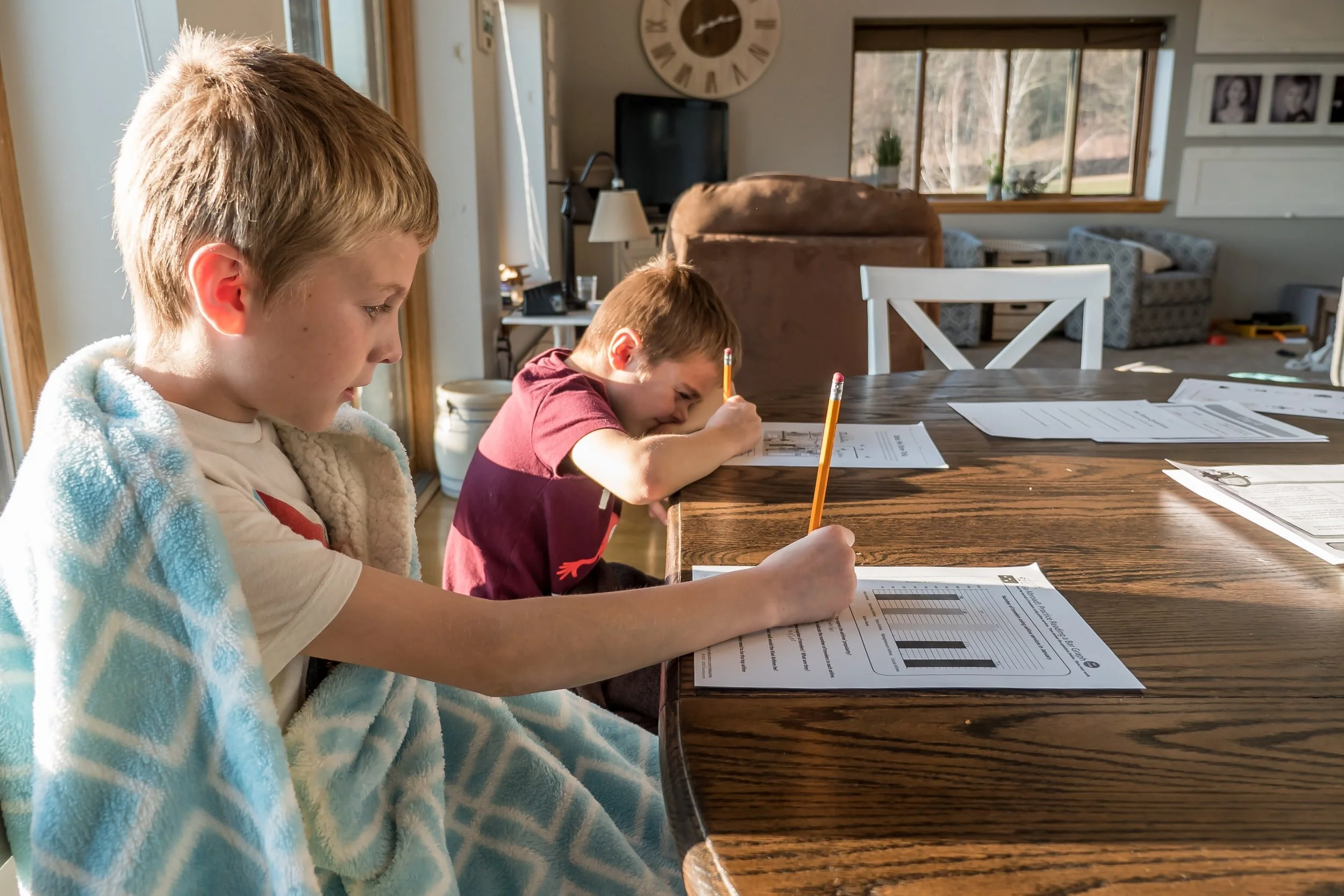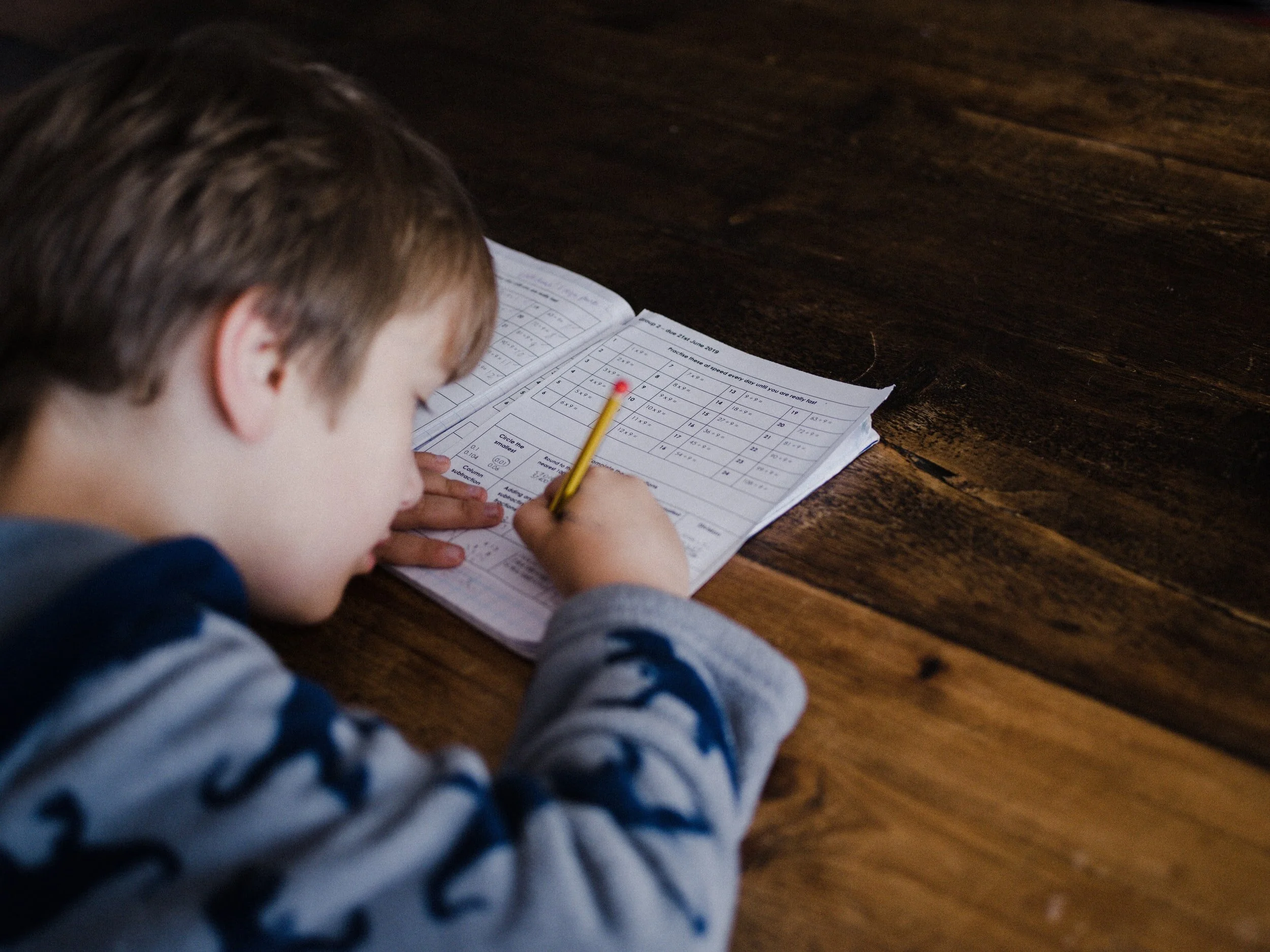When you think of a child who is a perfectionist, what do you envision? Most of us probably think of the stereotypical straight-A student who is enrolled in 5 extracurriculars and still somehow finds time to volunteer on the weekends. Even though we all know perfectionism is a “problem”, it tends to be seen as a good problem to have—the kind of thing it’s okay to mention on job interviews when you’re asked to describe your weaknesses.
Although it’s not officially a diagnosis, perfectionism is often misunderstood when we talk about kids’ mental health. Just like we casually say “I’m so OCD” and mean we are super clean or organized, we tend to call anyone who is a high achiever a perfectionist. But perfectionism isn’t always something that pushes kids to succeed: it can also hold kids back, and put them at risk for anxiety and depression. Keep reading to learn about the common signs and symptoms of perfectionism in kids, and how you can help your child who has a perfectionistic streak.
Perfectionism Can Hold Kids Back
A lot of us—myself included, sometimes—think about perfectionism as something that drives children to succeed. After all, holding yourself to a high standard challenges you to work harder and not give up. True perfectionism doesn’t always work this way. Perfectionist kids are so terrified of failure that they may limit themselves to activities that come easily to them.
They might avoid new sports or extracurriculars where they would risk making mistakes. They may also stick to familiar school subjects and interests rather than stretching themselves in new, less certain directions. Over time, this can limit a child’s growth. Mistakes are a crucial part of learning, so avoiding them means a child is missing out on learning opportunities in the long run. These children also run the risk of missing out on opportunities for fun, too: maybe some of those unfamiliar activities they passed up would have been really fun, if only they’d given them a shot.
What Are the Symptoms of Perfectionism in Children?
Perfectionism is a personality trait, not a mental health diagnosis. This means there isn’t an official list of signs and symptoms we can use to determine if someone is a perfectionist. However, it can be good to know if your child tends to think in a perfectionistic way, because it can sometimes lead to bigger problems with anxiety over time. Some children with perfectionistic traits may also have diagnoses of social anxiety, generalized anxiety, or OCD.
If you’re wondering whether your child might be a perfectionist, here are some symptoms to look out for:
Unrealistically high expectations for themselves or other people: more than just a high standard, these expectations are overly tough.
Easily frustrated by mistakes on homework or during other activities, to the point that the child might abandon the whole project.
Avoiding or putting off activities that the child fears may be difficult.
Worries about failing that are out of proportion to the actual situation.
Taking a long time to finish assignments or repeatedly re-starting them due to anxiety about not getting things exactly right.
Self-consciousness, low self-esteem, or lots of negative self-talk about the child’s own achievements.
Meltdowns when a child feels they have been criticized or not done well enough on their work.
Perfectionism goes beyond just a desire to succeed: the standards kids impose on themselves are unrealistic and exaggerated. Children may fear that their teachers will be extremely disappointed with them, or imagine their work is extremely sub-par, when in reality the situation is not so serious. Even small tasks can become a big deal when a child is struggling with perfectionism.
Can Perfectionism Cause Low Grades?
Not all perfectionistic kids are straight A students! While some perfectionistic kids are driven to excel in school, others have the opposite experience. Some children actually see their grades suffer as a result of perfectionism that’s gotten out of hand.
These children earn grades that are below their ability level because they are not handing in work they deem “not good enough.” Sadly, this often happens after hours of agonizing and working on an assignment—only to get no credit for it.
Even when a child with perfectionism is successful in school, it comes at an emotional cost. Although they may seem happy and accomplished on the outside, these children are often insecure and unhappy on the inside. It’s hard to feel satisfied with your achievements when it always feels like you could have done more.
How to Help a Child With Perfectionism
Parents can do a lot to support children who are prone to perfectionism. Many schools are starting to recognize the importance of developing a growth mindset, which encourages kids to focus on their effort instead of simply the end result. Fostering a growth mindset is one of the best things you can do to combat perfectionism. Here are a few things you can try at home to get started.
Focus on the process, rather than the product. Instead of just praising your child’s amazing drawing or their high score on a test, let them know you are proud of the work it took to get to that point. You can compliment your child on all the research they did, how careful they were in drawing their picture, or how much time they put into learning a new skill. Even if the end result isn’t perfect, the effort is still worthy of praise.
Make the connection between accidents and growth. Older kids might like to hear stories about some famous mistakes that led people to unexpected success. For example, penicillin was discovered accidentally when mold grew on a petri dish the scientist was trying to use for something else. Potato chips are the result of somebody cutting French fries way too thin. Penicillin saves lives, and who doesn’t love a potato chip?
Read books that celebrate mistakes. Younger children might enjoy Beautiful Oops!, a pop-up book that shows how mistakes in art can be turned into something beautiful. I use this book a lot in my therapy practice. Although it’s intended for young readers, older children like it too. It can open up great conversations about creative problem solving.
Be a good role model. Whether it’s because of genetics or just learned behavior, perfectionism can run in families. Kids study their parents closely to decide how they should deal with things, so even day-to-day setbacks can be a casual learning opportunity. Pay attention to how you talk about your own mistakes, especially if you tend to be hard on yourself, too. If you can reframe them as something that isn’t a big deal, your child may follow suit, too.
When Perfectionism Turns Into Anxiety, Child Therapy Can Help
Perhaps unsurprisingly, perfectionist kids are prone to developing anxiety and depression. Sometimes, perfectionism can be the first sign of a mental health disorder like OCD, which can involve repeating things, checking work, and recurring worries about mistakes. It can be really isolating to struggle with perfectionism, and children may feel like they’re the only people on earth dealing with these feelings.
If you’ve tried self-help coping skills and they aren’t enough to overcome your child’s worries, counseling can help your child approach school in a more balanced way. Approaches like cognitive behavioral therapy help notice when their thoughts are unrealistically focused on failure. Over time, kids can learn to think more flexibly and take mistakes in stride. Almost as importantly, therapy reassures kids that they’re not alone: plenty of kids (and adults) have felt this way, and overcome their worries.
If you’d like to learn more about counseling, you can check out my page on child therapy here. I am available to help kids in the states of North Carolina, New York, and Florida from my online and in-person therapy office in Davidson, North Carolina. If you’d like to talk more about therapy with me, you can drop me a line here.




